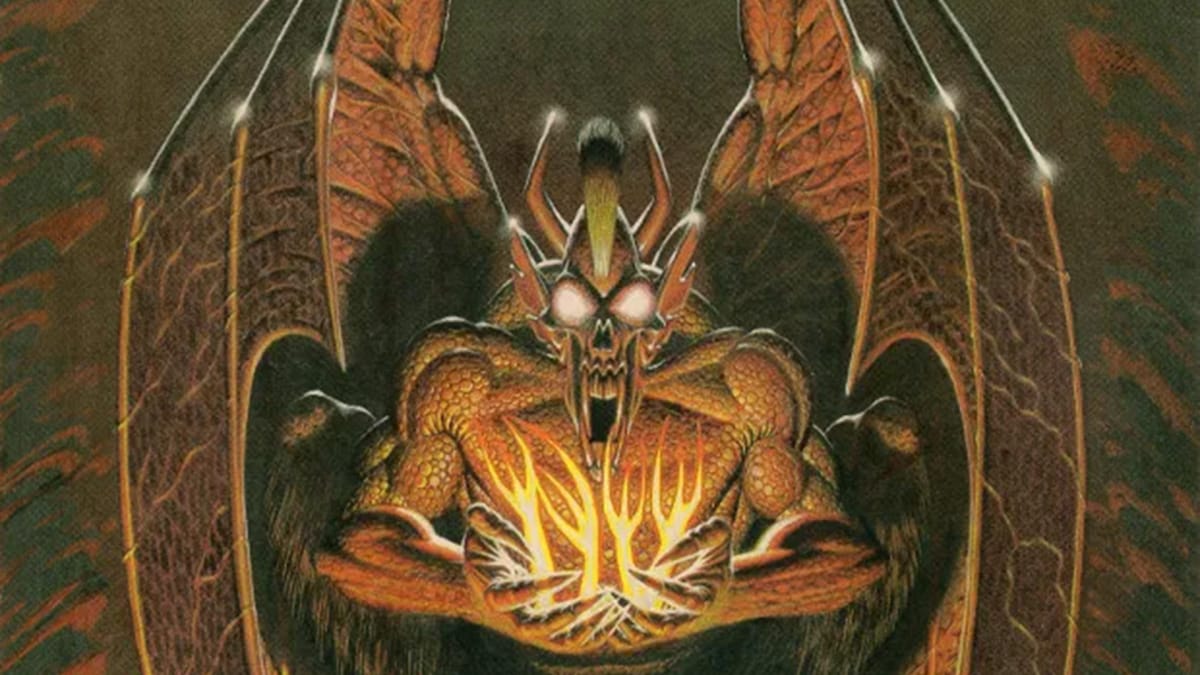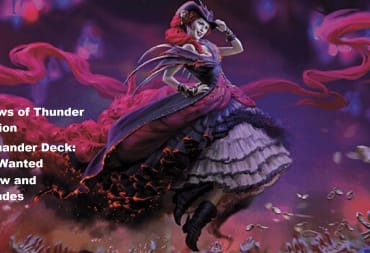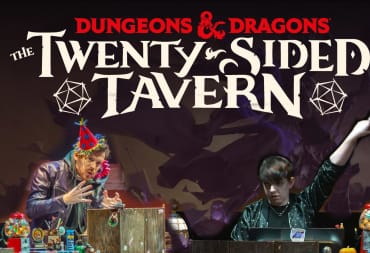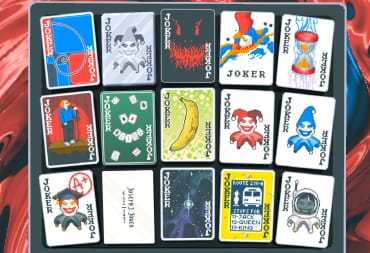When it comes to famous RPG series, the first game many people think about is Final Fantasy, but there's another series that started life half a decade earlier and is one of the most influential games in the genre's history. Despite how important it was in getting the genre off the ground, not that many people have actually heard of it. Ultima is a series that started life in the early '80s as the nerdy bedroom coding project of Richard Garriott and eventually become a series that spawned over 20 titles across two decades, before crashing and burning at the feet of one of gaming's biggest companies. So on this, the 40th anniversary of the series' inception, we've decided to take a look into the sordid history of Ultima and it's rise and fall.
A Humble Beginning
The story of Ultima's early years is really the story of the game's designer Richard Garriott, otherwise known as Lord British. Back in the mid to late '70s, a 16-year-old Garriott was attending high school in Texas, spending his evenings playing Dungeons & Dragons with his friends and his days baffling all of his teachers by producing “dungeon games” on a teletype machine, then presumably baffling himself by getting As for them.
By his junior year, he had created a huge number of these games, and he hungered for more. When his father bought him a monochrome Apple II, he began a project that no one realized the significance of. With his D&D players as testers, Garriott started work on a game using Apple BASIC that would eventually come to be known as Akalabeth: World of Doom.
Despite being a bedroom coding project, Akalabeth would see a limited release in 1979 and a general release in 1980. The reason this is important is that it was basically one of the first RPG video games ever made, all because one guy liked to make video games based on his D&D campaigns. Akalabeth featured a tile-based overworld that you must explore to find various dungeons. Each dungeon contains monsters of increasing power that you need to defeat at the behest of Lord British to prove yourself a true knight.
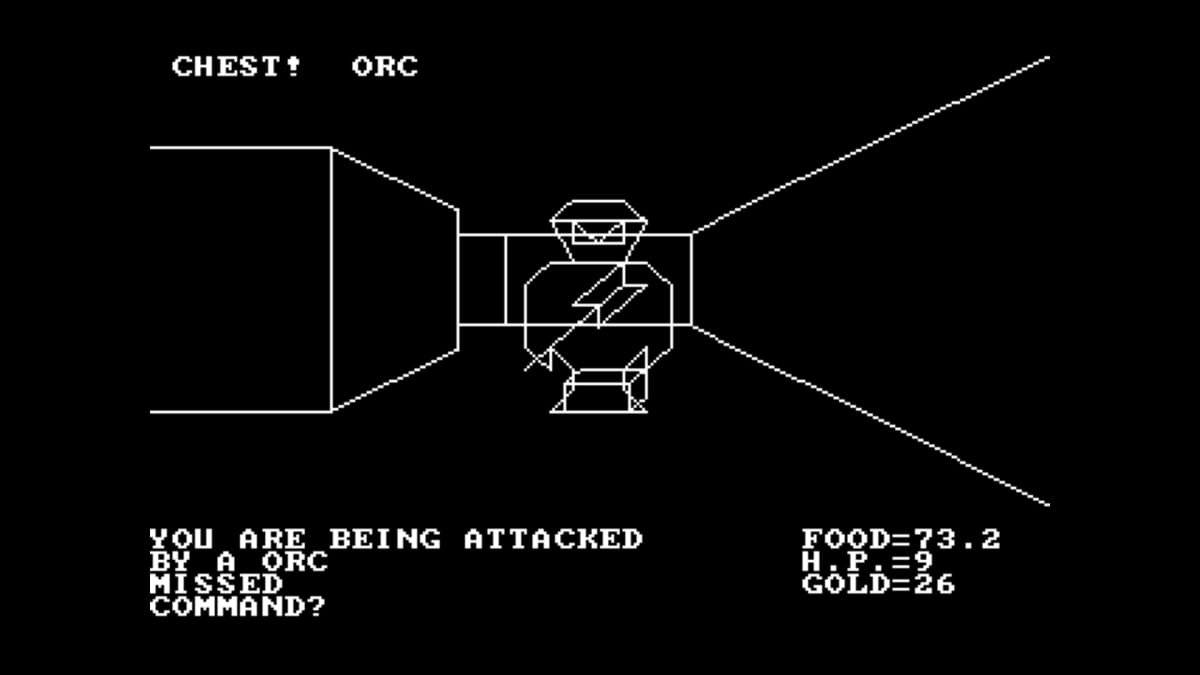
It might seem strange to be talking about Akalabeth when we're supposed to be talking about the history of Ultima, but the two are pretty inseparable. While Akalabeth doesn't have a direct connection with the main series, the inclusion of characters like Lord British ties the two together, not to mention the fact that many fans see Akalabeth as basically a spiritual predecessor to Ultima. This was when Garriott was testing out ideas that would eventually make their way into Ultima.
By the fall of 1980, Garriott and his friends had begun work on a new game, eventually titled Ultima: The First Age of Darkness. While this game featured the same top-down, tile-based perspective and movement found in Akalabeth, it had a new suite of graphical tiles, and a more intricate, if a little trope-y, story.
No longer are you some random schlub questing to be a knight, but you're a hero who must save the land of Sosaria from the evil wizard Mondain. Honestly as basic as the story might sound, it doesn't prepare you for the insanity that is this game.
Ultima: The First Age of Darkness might seem like a standard fantasy adventure, but in what sort of fantasy adventure can you buy a spaceship, a phaser, meet up with a time lord, and of course go to space and shoot down TIE fighters? Considering these games are based on Garriott's D&D games, I have to imagine they were some of the most insane sessions that have ever been had by anyone.
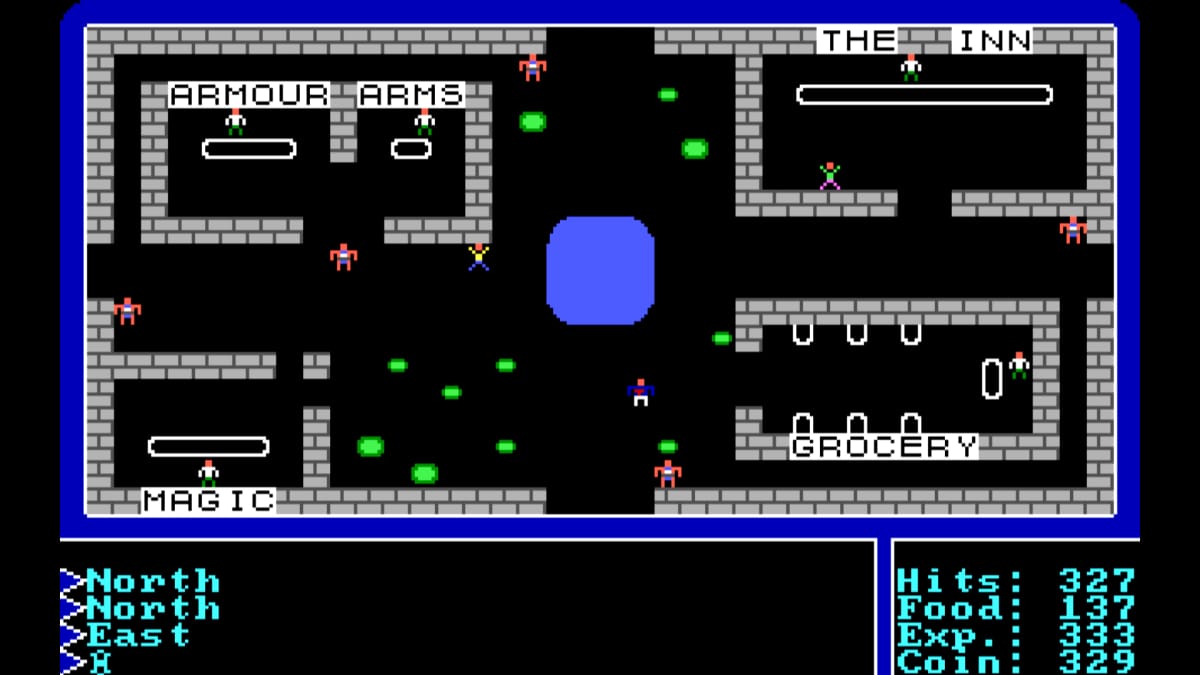
The real important part of this origin story jumps ahead a few years from this point. By 1983, Garriott had released an entire trilogy of Ultima titles, and in doing so had inspired an insane amount of future RPGs. In particular, Ultima III: Exodus is considered by many to be the first modern CRPG of all time.
These games popularized the use of tile-based maps, party-battling systems, and using an in-game narrative to tell a wider storyline rather than focusing mostly on combat. Hell, before the Ultima series, most games of this ilk would dump you in a dungeon and expect you to explore it, rather than giving you a living, breathing world to explore.
The real takeaway from this story is that Garriott took his own D&D games and casual game-coding hobby and created one of the first computer RPGs of all time, then for an encore started a series that would be so enduring that it would feature one of the longest-running MMO games of all time, inspiring an insane amount of the important parts of RPGs that we know and love today.
How Ultima Became a Legend
While it was the early Ultima titles that went on to inspire the entire RPG genre, it was the second trilogy of Ultima games that cemented Garriott, and his company Origin Systems, into the minds of an entire generation of gamers.
Ultima IV, released in 1985, begins one of the grandest plots in early RPG history. Unlike pretty much every game of its era, Ultima IV doesn't feature an ultimate evil that needs destroying. Instead, you're tasked with embodying eight virtues and journeying across the land to unify everyone under a unique philosophy. Eventually, you prove your worth at the eight shrines, descend into the Stygian abyss, and retrieve the codex of ultimate wisdom, proving yourself to be the avatar, the ultimate moral authority, and hero of the land.
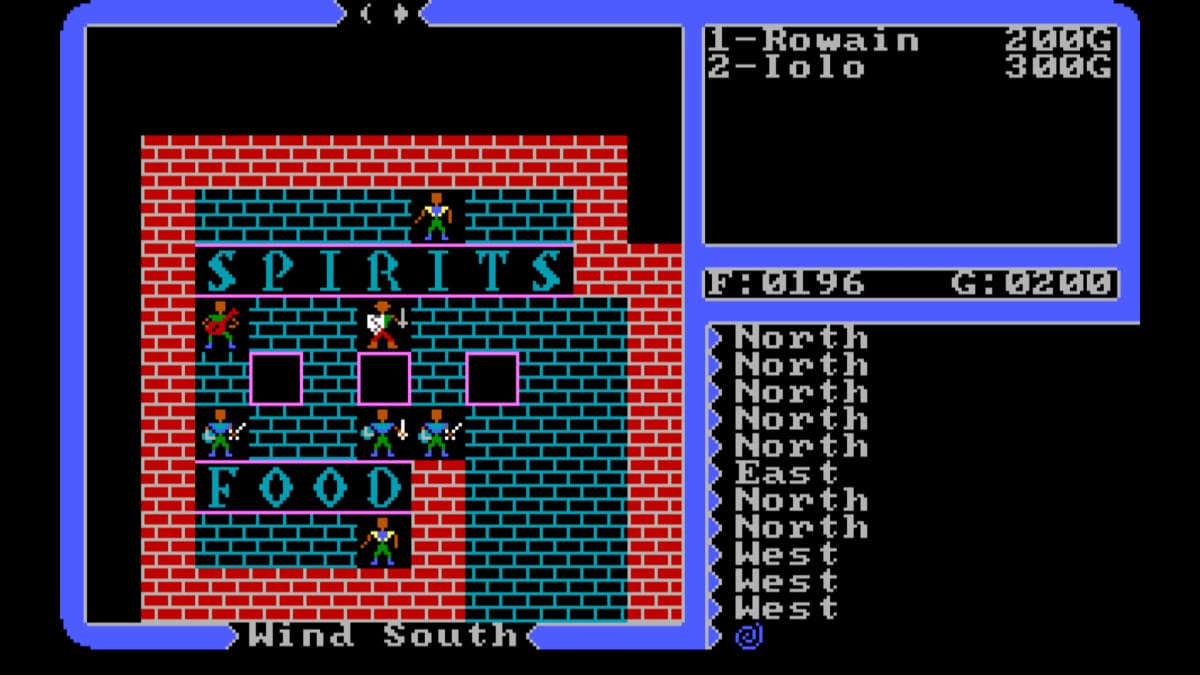
This moral system is almost certainly the first of its kind in all of gaming, and it's far from the binary moral choice systems that plague modern gaming. These virtues are reflected in how you choose to act throughout the game. Killing fleeing opponents will reduce your honor. Lying will reduce your honesty. You have to actually think about how you're playing your role in the universe, and have your actions reflect that role.
The best part about the second Ultima trilogy is how Garriott twisted his own creation to make an incredibly dark and adult storyline. In Ultima V, released in 1988, the Avatar returns to Britannia, the new name for the land after Ultima III, to find that Lord British is missing, and his right-hand man, Lord Blackthorn, has perverted the eight virtues.
Working with the shadow lords, Blackthorn has taken it upon himself to turn the virtues into mandatory laws. Anyone who breaks with the virtues, even once, is to be punished. Brutally. He's even gone to the trouble of rewriting the virtues into his own perverted versions. For example, honesty becomes, “Thou shalt not lie, or thou shalt lose thy tongue,” and sacrifice has become, “Thou shalt donate half of thy income to charity or thou shalt have no income.”
It's chilling to see these great philosophical and moral ideas turned into state-mandated laws that have made the entire population fiercely loyal to the system for fear of losing their lives or families. Even more interesting is the fact that the player is an outcast. As part of the quest, you have to break open sealed dungeons, steal items from Lord Blackthorn's castle, and avoid arousing the suspicion of the people.
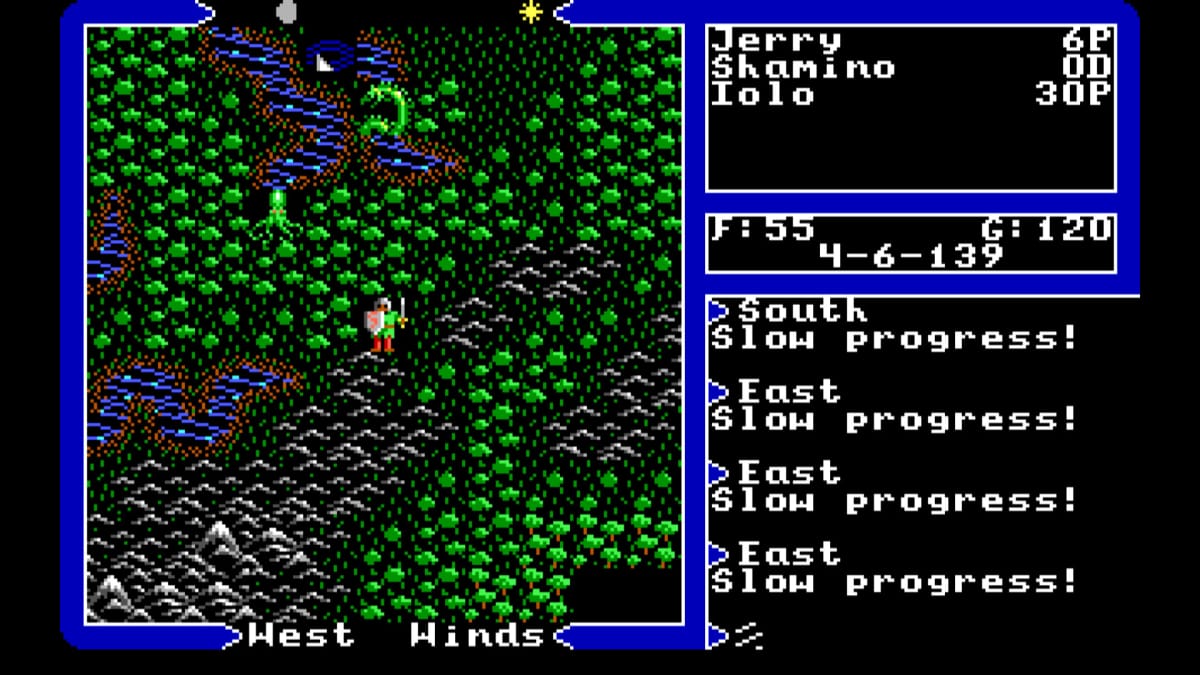
Ultima V also features one of the most harrowing scenes in RPG history. If you get caught stealing from Blackthorn, he takes you to the dungeon and demands important information from you. It's up to you if you give him what he's asking for, but if you choose not to, each of your companions is killed, brutally, and unlike most deaths, these cannot be reversed. Your party members are lost for good.
The final entry in the second Ultima trilogy, Ultima VI: The False Prophet, released in 1990, continues the trend of twisting the moral lessons of Ultima IV and spitting them back in your face. Returning to Britannia after years, you discover that a race of evil-looking gargoyles is at war with Britannia. Despite their appearance and their attempts to murder you in the opening, these gargoyles actually aren't evil. They're attempting to stop the destruction of their race from a prophecy that started when a sword-wielding human broke into their most sacred temple and stole their holy book. In case you aren't putting the pieces together, that was you back in Ultima IV.
As you learn what is truly happening, you have to force peace between the two races, rather than simply murdering your enemies. It should be pointed out that Lord British himself actually wants you to just kill the gargoyles rather than seeking peace, so you sort of have to go against your instincts, and instructions, to achieve your true goal.
During this period, the Ultima games were constantly expanding on a technical level, as well as a narrative one. As well as producing a complex moral system that potentially influenced video games for generations to come, as time went by the games looked and sounded better, the worlds becomes larger and larger, and the gameplay featured new and more complex battle, magic, and inventory systems.
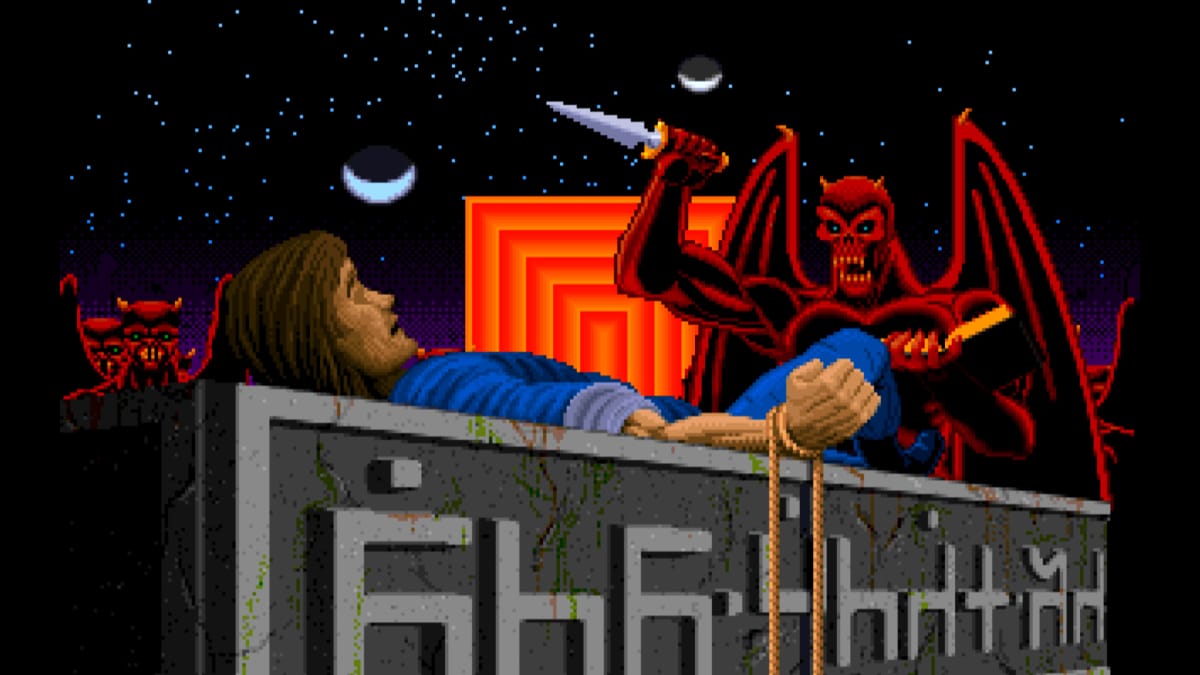
As the games grew, so did Origin Systems and the fan base. A lot of these games were huge sellers for the systems they were released on, and many of the games ended up being ported to various home computers and consoles. The problem with this huge run of success is that it throws into relief the sharp downward turn that was waiting just ahead.
Ultima: The Beginning of the End
By 1992, Origin Systems had grown to an incredible size and was famous for much more than just the Ultima games. The Wing Commander series in particular would become one of the most well-known series of all time, eventually featuring huge stars like Malcolm McDowell and Mark Hamill.
This huge amount of success was starting to draw attention, and in September 1992 a certain company made moves towards purchasing Origin. That company was EA, and if you have any knowledge of the way that EA acquisitions usually go, then you know why this is the point in the story where things start to take a dramatic turn for the worse.
Earlier in 1992, the next entry into the Ultima series had already been released. Ultima VII: The Black Gate managed to outdo every previous game in the series, and that's saying quite a lot considering how integral to the development of the RPG genre the previous entries had been. In many circles, Ultima VII is the greatest RPG ever created and was a huge commercial and critical success. Even Garriott himself claimed this to be one of his favorite games in the series.
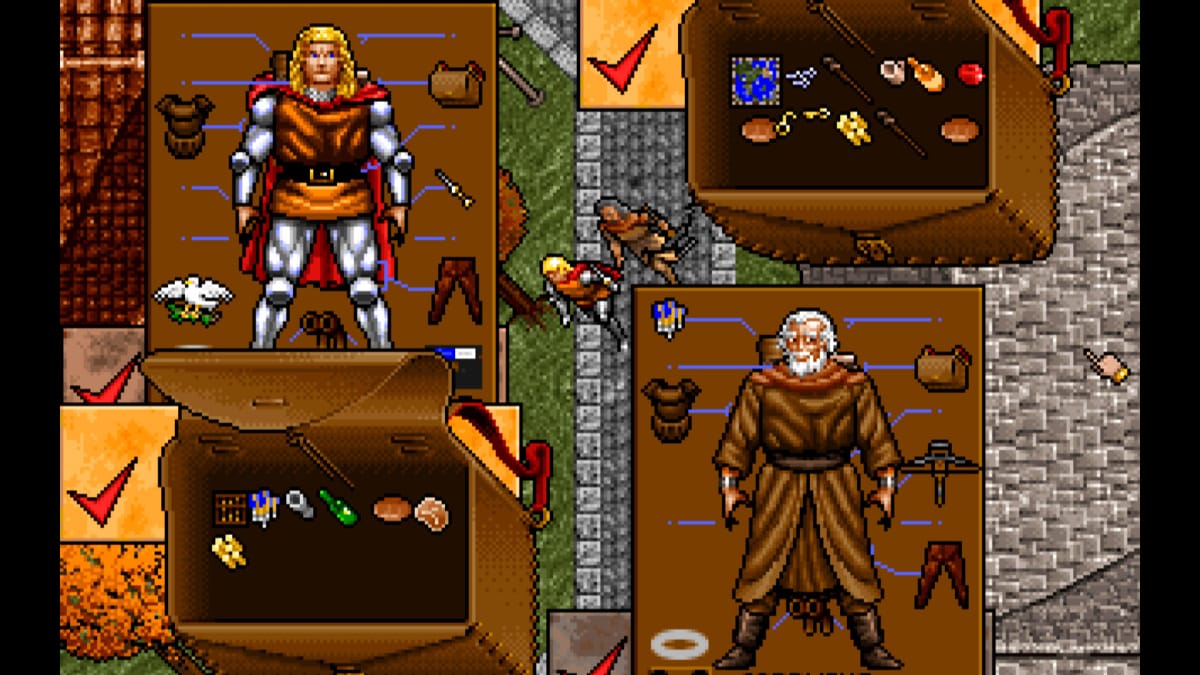
No longer is the game tile-based, and the graphics and sound are better than ever. Voice acting is introduced for the first time in the series, and the items in the world can actually be used to solve certain puzzles or to affect combat. On top of all of that, the entire game now takes place in real time, so no more magically pausing your enemies during combat while you think about what to do, unless you open an inventory or menu of course.
Honestly, there are enough innovations and narrative points that this segment could be an entire feature unto itself, but the important part to take note of is that this is one of the most well-made and well-loved computer RPGs of all time. When it was released, it was groundbreaking in a way that almost no other game has been before or since, at least not for RPGs.
This is, unfortunately, the end of the positive part of the tale. After Ultima VII: The Black Gate, the next release was to be Ultima VII Part Two: Serpent Isle, the second half of the game. There's not too much to talk about with this second game, as it was pretty much the same game as the first half but with more problems. The game is filled with inventory management issues, disk reading problems (at least on original DOS PCs), some terrible puzzles, and the need to manually feed all of your companions or they'll die. While these issues are relatively minor, and the plot and main gameplay still represent some of the best of its era, this is the turning point.
How Ultima Fell From Grace
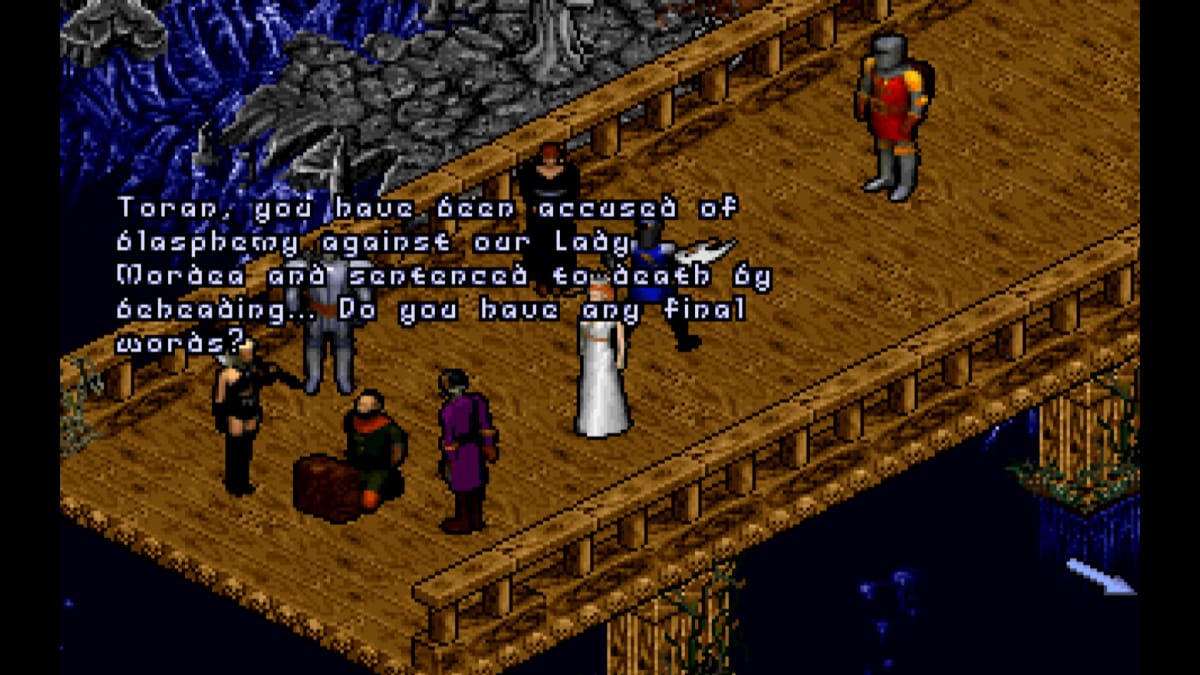
Since Ultima VII Part Two was released in early 1993, EA's influence wasn't much of a factor. By the time of Ultima VIII, that was no longer the case. From Garriott's own mouth, EA basically rushed the development of Ultima VIII so that it could be released in time for Christmas 1993:
The game we were developing when we sold Origin was Ultima VIII; EA wanted it on the shelves in time for the following Christmas. This was the first time in my life that the realities of business became more important than the quality of a product. They were adamant: 'Richard, you need to cut whatever needs to be cut to get this game done.' So I cut it; I cut it and I cut it and I cut it, and as a result, I shipped the most incomplete, dumb, buggy game I’ve ever shipped. I still believe that if we had waited until it was complete, Ultima VIII would have been a great game.
As you can probably guess, this game is a complete and utter mess. The story is threadbare and poorly told. You have no companions anymore and an incredibly basic magic system. Even worse is the huge focus on precision platforming that makes the game almost completely unbeatable without either cheating or save scumming.
Then, of course, there are the bugs. In the modern version, the bugs have been slightly smoothed out by a patch, and the platforming has been slightly improved, but at the time of release, there were huge bugs, such as quests that led to nowhere, missing items, and skill teachers who don't teach any skills. Then there's the visual design. Not only does your character no longer even look like the Avatar, but 80% of the game takes place in grey caves that all look completely the same.
It was the huge disappointment of Ultima VIII that finally killed the series. After such a huge misstep, Origin began reworking everything about Ultima IX. The final game in one of the greatest RPG series of all time went through at least four incredibly distinct versions throughout its development cycle. Garriott himself went from being heavily involved, to lightly involved, and back to heavily involved again.
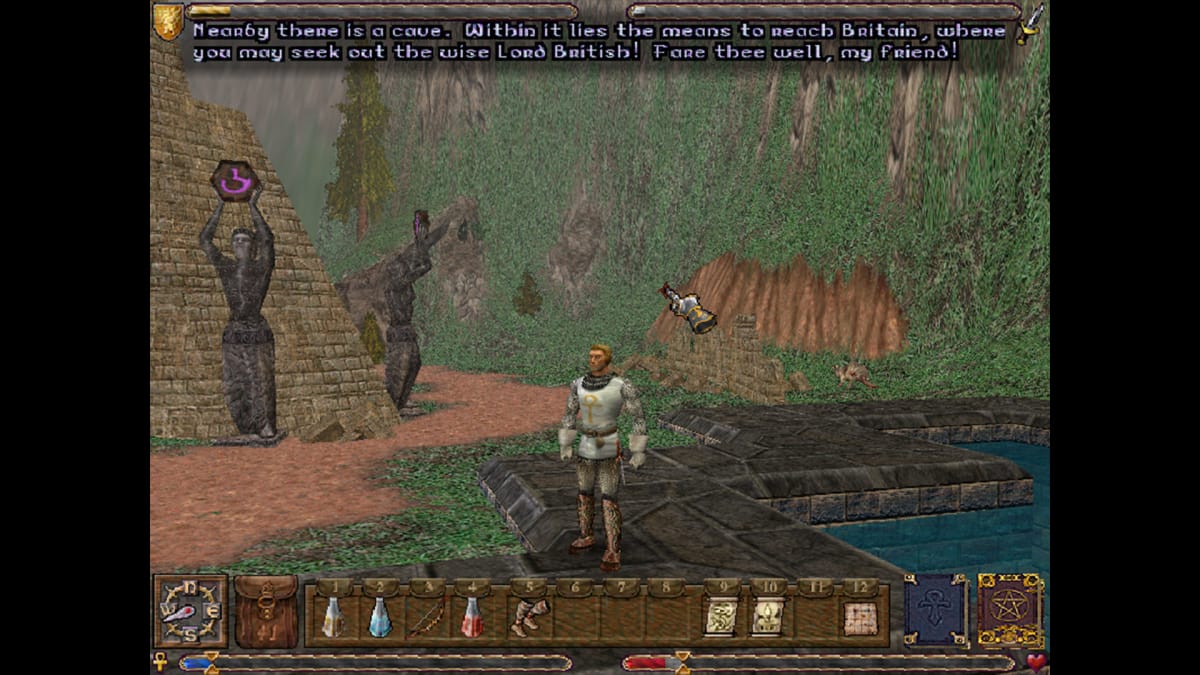
Between 1994, when Ultima VIII released, and 1999, when Ultima IX released, Origin lost a chunk of its important staff members due to undisclosed “philosophical” issues. A lot of work was done on expensive voice acting and pre-rendered cinematics, and then the game was rewritten. To save on money, a lot of these cinematic had to be kept, resulting in a disjointed, broken storyline that doesn't make any sense. Not to mention, it completely ignores major elements of the incredible canon set up by previous titles.
There are some who claim that EA once again forced the release of the game too early, but there's no corroborating evidence to support this. Considering how buggy the first release was, that wouldn't be too shocking to anyone. Once again, shocking no one, Ultima IX sold incredibly poorly and received terrible reviews.
A few years after its release, Garriott left Origin, abandoning the seminal work of fantasy that was his creation. Due to how badly the game performed, almost all Ultima projects were canceled by EA, other than a few more expansions for Ultima Online. By 2004, no more Ultima games were being produced, and EA shut down Origin Systems, killing the company that had created some of the greatest and most influential video games of all time.
The End of Ultima Forever
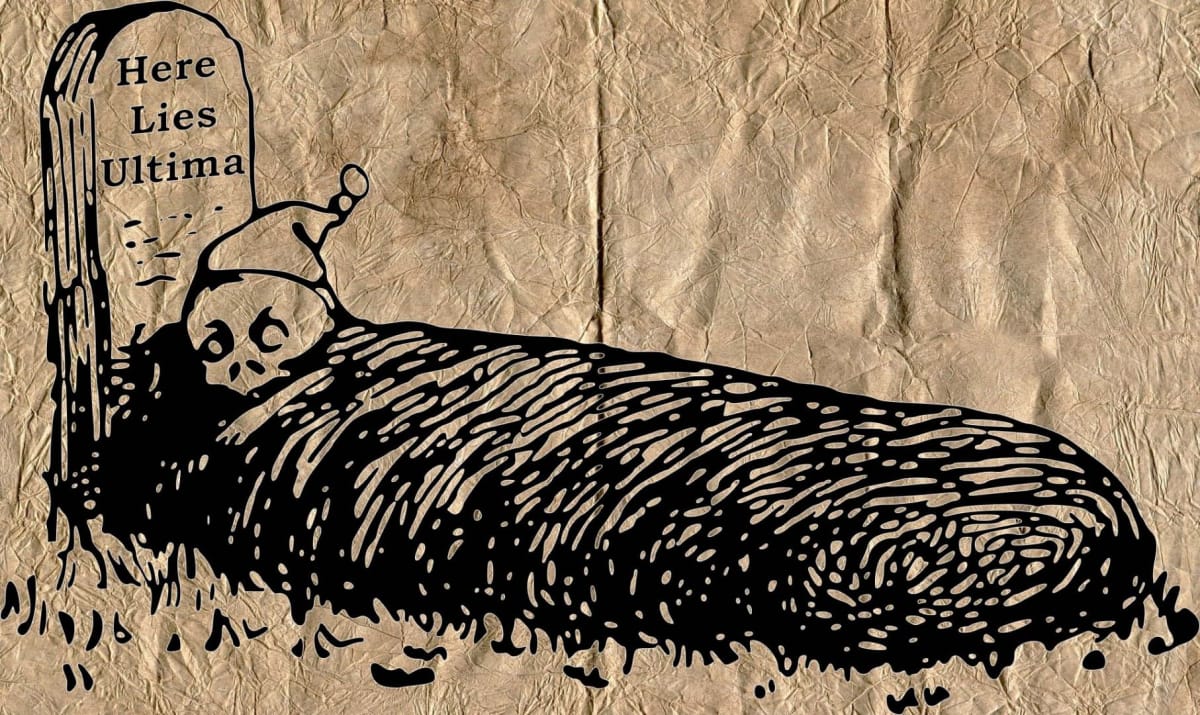
And that's the epic tale of Ultima, the greatest video game series that EA ever foolishly suffocated in a misguided attempt to turn a profit. Considering the insane pedigree that the series had built up by the early '90s, it's crazy to think how quickly the series tanked. The weirdest part of all of this is the fact that EA let it happen. They bought a company who were incredibly successful at making games, then told them to change how they made those games, making them incredibly unsuccessful. It would have been interesting to see how the series could have ended if EA had taken an uncharacteristic “hands-off” approach.
Probably the worst part of this entire thing is that the chances we'll ever see a proper ending to the series is practically zero. EA owns the Ultima copyright, and Garriott has proposed several attempts to revive or remake the series over the years, each time being shot down by EA. They're probably scared the games won't succeed, which of course they wouldn't if EA acted like their usual self.
If this sorry tale has got you in mind to enjoy some classic gaming, then you're in luck. The entire Ultima series if available, DRM-free, thanks to the folks over at GOG. Even the later, bug-ridden games have been somewhat improved with various patching efforts and fan modifications. If you want to experience one of the greatest series gaming has ever produced, there has never been a better time than now.
Disclosure: TechRaptor makes a small commission off purchases made via some of the links on this page.
Have a tip, or want to point out something we missed? Leave a Comment or e-mail us at tips@techraptor.net
